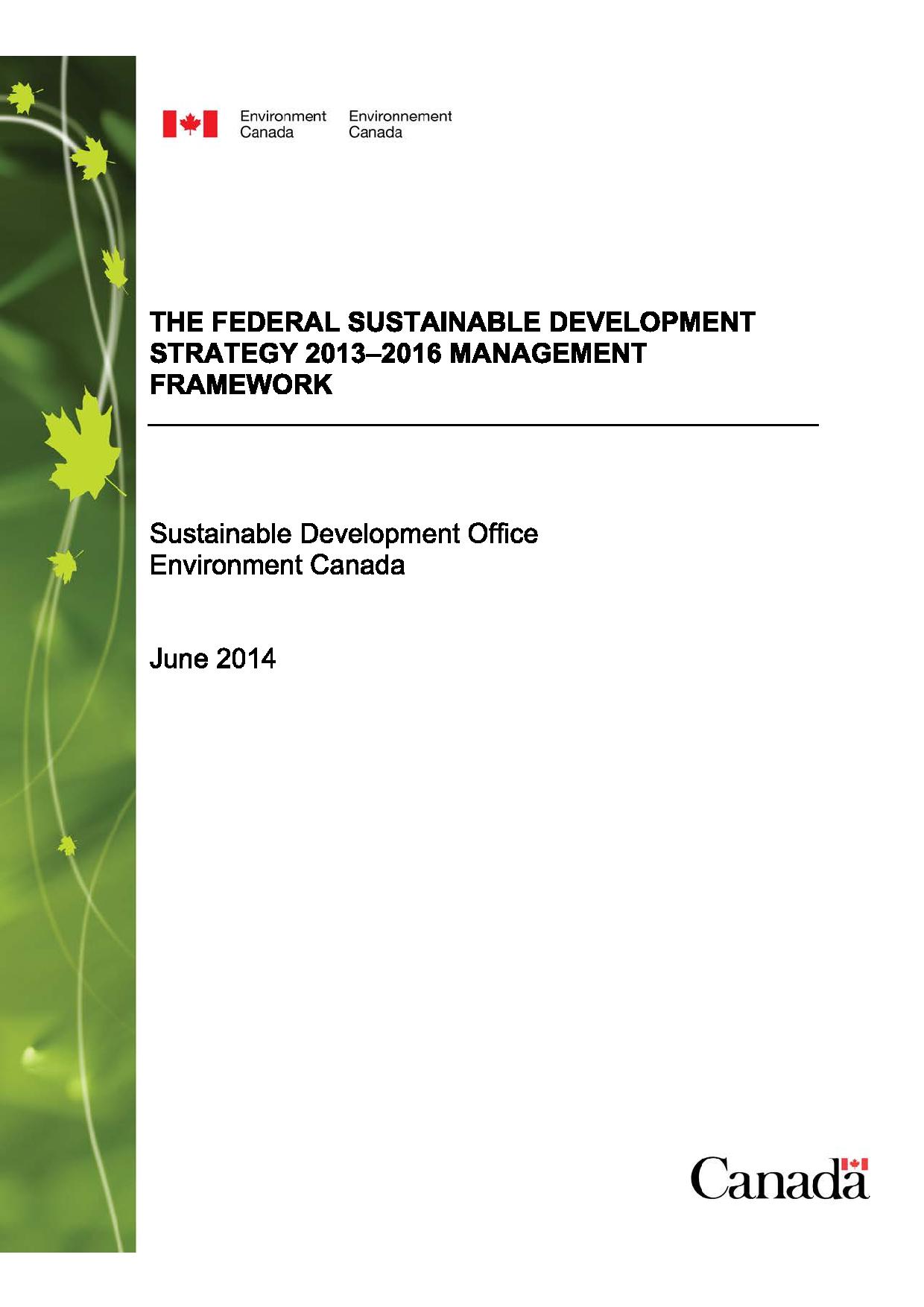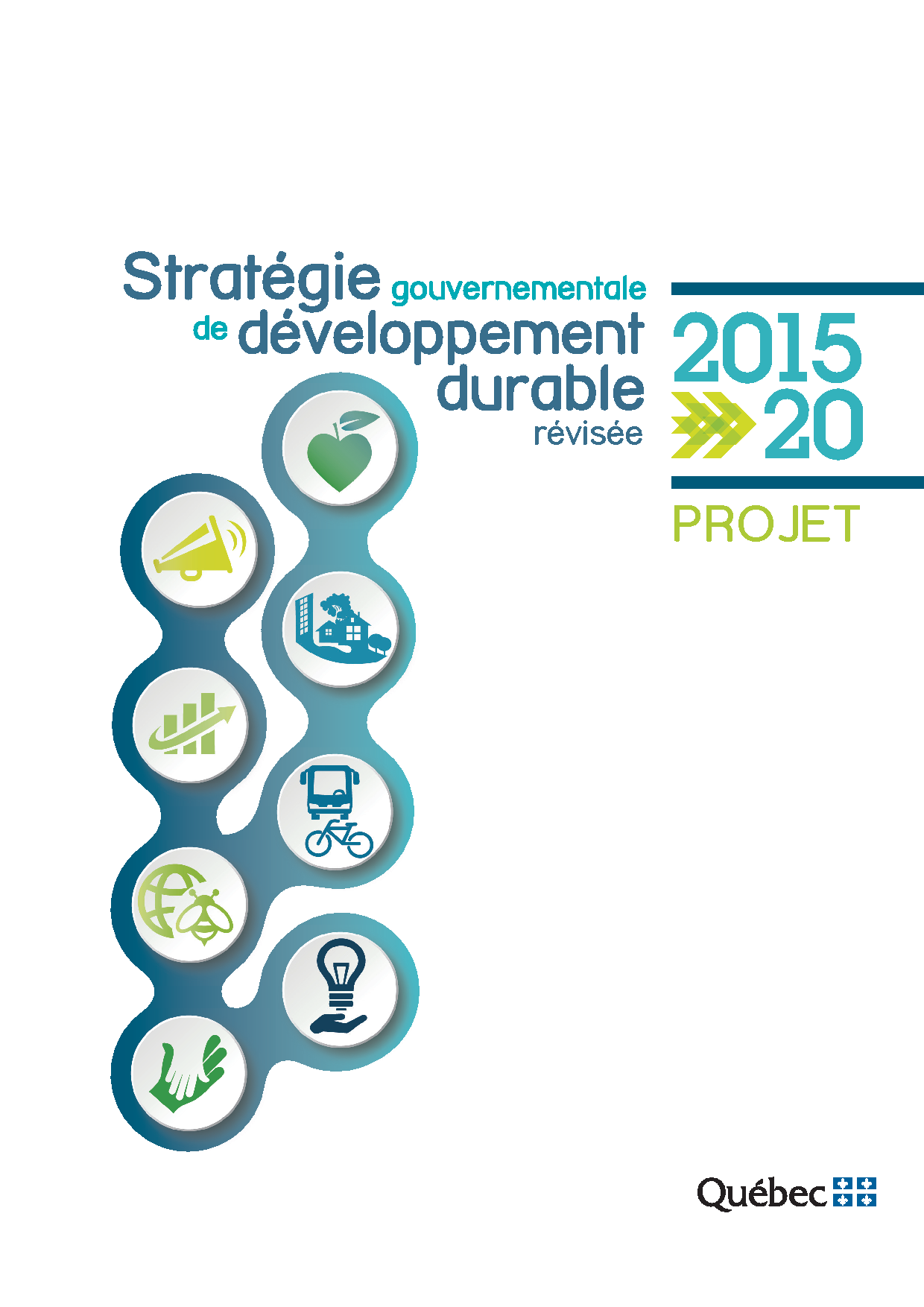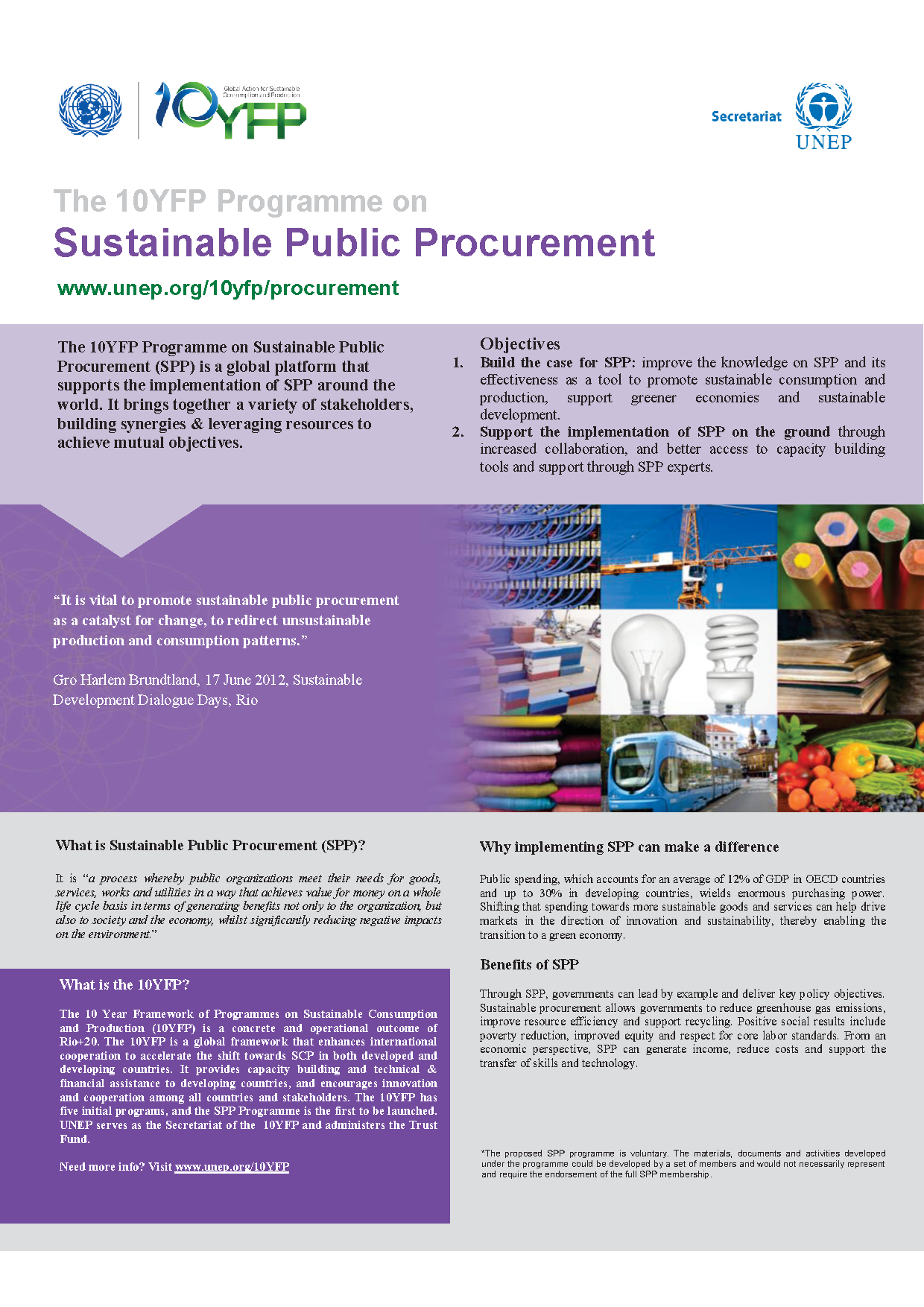procurement totals over US$500B in goods and services. Under the order, federal agencies must set a 2020 goal to “leverage federal purchasing power to promote environmentally-responsible products and technologies.” In November 2013, the Environmental Protection Agency (EPA) released Draft
Guidelines for Product Environmental Performance Standards and Ecolabels for Federal Procurement for consultation and later published a revised document, the Revised Guidelines on the Environmental Effectiveness of the Standards (Section II). The next step is a
pilot phase, which is slated for 2015.
Finally, the United Nations Environment Programme released a global platform to promote green procurement: the Global Action for Sustainable Consumption and Production
10YFP Program. The initiative brings together various stakeholders to create synergies and mobilize resources to attain common sustainable procurement objectives. The ECPAR has been a member since 2012.
Measures implemented by the government of Canada

In 1995, the federal government’s amendments to the Auditor General Act created a legal obligation under which over 25 departments and agencies were to draft, publish and report on their sustainable development strategies. The
Federal Sustainable Development Act was passed in 2008. The Act called for the development of a Federal Sustainable Development Strategy (FSDS) that would be revised at least every three years. In addition, the departments and agencies subject to the Act were to set out sustainable development objectives and an action plan. The first Federal Sustainable Development Strategy (
FSDS 2010-2013) was tabled in Parliament in October 2010 and updated in 2012 (
FSDS 2013-2016). One of the four major themes of the most recent strategy—Shrinking the Environmental Footprint-Beginning with the Government—is focused on procurement. The strategy imposes targets on departments and agencies but does not set out specific expectations in terms of purchasing.
The
Policy on Green Procurement, which only applies to the federal government, has been in effect since 2006. Four key departments are targeted for its implementation, including Public Works and Government Services Canada (PWGSC), which provides joint services to other federal ministries and carries out most of the federal government’s procurement. PWGSC created and mandated the Office of Greening Government Operations and a green procurement team to establish a series of guides, tools and training programs to support the department and other federal services and agencies in the attainment of their responsible procurement targets.
Most of these tools have been released to the public:
Measures implemented by the government of Québec

The Sustainable Development Act provides a sustainable development framework for government departments and agencies. It sets out 16 principles, including responsible production and consumption. In 2008, in an effort to ensure the coherent application of the Act, the government released the first Stratégie gouvernementale de développement durable 2008-2013, which included directions that organizations subject to the Act were obligated to take into account. Of these directions, the Produire et consommer de façon responsable strategy incited several departments and agencies to develop responsible procurement policies, plans and practices. The government even created the Politique administrative pour un gouvernement écoresponsable, which sets out specific requirements for several product categories.
On December 4, 2014, the Ministère du Développement durable, de l’Environnement et de la Lutte contre les changements climatiques introduced a draft strategy—the projet de Stratégie gouvernementale de développement durable révisé 2015-2020—based on the results of the 2008–2013 edition. It accounts for the observations and findings of the Rapport sur l’application de la Loi sur le développement durable and the État de situation du développement durable au Québec report for 2006–2013.
In 2015, a parliamentary committee will hold a public consultation on the draft strategy.
The Bureau de coordination du développement durable (BCDD) oversees the initiative and follows up on the actions implemented by departments and agencies.




